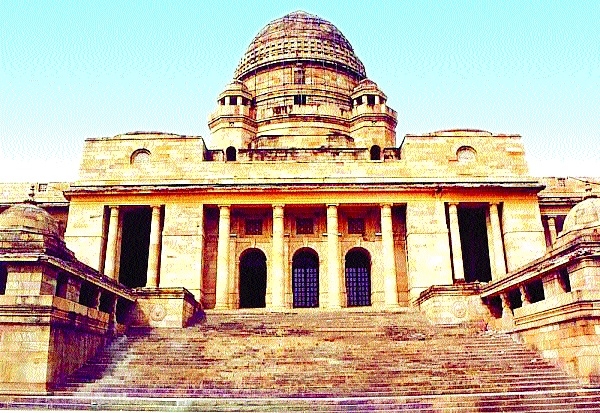HC modifies death sentences to two, acquits woman in Akola farm dispute massacre case
14 Nov 2024 12:05:32

From Death Row to Life
“Imposition of punishment is a delicate task of every criminal trial. The variety of circumstances needs to be considered while imposing punishment. The case does not fall in the category of ‘rarest of rare category’, thus, capital punishment is unwarranted,” say Justice Vinay Joshi and Justice Abhay Mantri
Staff Reporter :
Observing that the massacre case, in which four persons were killed over a farm dispute in the Hiwarkhed Police Station area of Telhara taluka, Akola district in 2015, is not a “rarest of rare” case, the Nagpur Bench of Bombay High Court on Wednesday commuted the death sentences of the accused. Justice Vinay Joshi and Justice Abhay Mantri awarded life imprisonment to the father and 30 years of rigorous imprisonment to the son, while acquitted the mother.
The accused, identified as Haribahau Rajaram Telgote (66), Dwarkabai Haribahu Telgote (55), and their son Shyam alias Kundal Haribhau Telgote (35), are accused of the brutal killings of four of their relatives.
The High Court handed down a life sentence to Haribhau, and 30 years’ rigorous imprisonment without remission to Shyam for their involvement in the brutal killings.
However, Dwarkabai was acquitted, as there was insufficient evidence to prove her direct involvement in the murders.
The deceased, Baburao Sukhdeo Charhate, Dhanraj Sukhdeo Charhate, Gaurav Dhanraj Charhate, and Shubham Dhanraj Charhate, lost their lives in the brutal attack on June 28, 2015, at Malpura village, Tehsil Telhara in Akola district. The prosecution established that the three accused, armed with weapons including a knife, sickle, and axe, launched a vicious assault on the victims. The incident took place in broad daylight and was witnessed by several villagers. The victims were left in a pool of blood on the spot, and the accused were arrested shortly after, with their bloodstained clothes confirming their involvement in the crime.
While the Trial Court had sentenced the accused to death and declared the case to be a “rarest of rare” instance due to the brutality of the murders, the High Court found the lower court’s reasoning problematic. The Trial Court had referenced irrelevant factors, such as the number of murders committed in the state and the unusual involvement of a woman in the killings, to justify the extreme sentence. The High Court observed that each case should be assessed based on its unique facts, not generalised statistical data.
The High Court’s ruling focused on the severity of the crime and the age and health of the accused. Haribhau, aged 65 at the time of the judgment, was granted life imprisonment due to his health condition, while Shyam, aged 25 during the murders, was sentenced to life imprisonment without the possibility of remission for 30 years. The High Court noted that while the crime was heinous, the death penalty was disproportionate, and life imprisonment with a long non-remission period for Shyam was more appropriate. In addition to the commutation of sentences, the High Court also reduced the fine imposed on the accused. While the Sessions Court had levied a fine of Rs 50,000 on each of the convicted persons, the High Court lowered this to Rs 10,000 each.
The judgment also cleared Dwarkabai of all charges, concluding that there was insufficient evidence to link her directly to the murders. She was acquitted and ordered to be released immediately. Advocate Rajendra Daga represented the accused.
